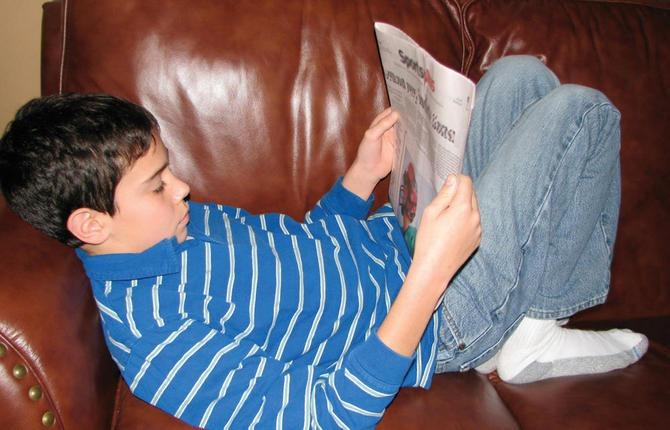
The procrastinating child
Do your kids take forever to do simple homework? Keep putting off studying for tests, or working on long-term projects? Is getting them to clean their rooms a huge struggle? If this sounds familiar, you may have a procrastinator in your midst. Before you chalk this behaviour up to laziness, you may want to consider some of the rarely talked about reasons why people procrastinate … AND get easy strategies to help break the cycle.
Why Do We Do It?
There are many reasons why kids (and adults) procrastinate. These can include:
Feeling overwhelmed by the task. Some kids freeze when faced with a task that seems overwhelming or too complex. In this case, the secret is showing them how to "chunk it"—how to break a task down into smaller parts and then choose only one on which to focus. Recently I interviewed Rita Emmett, author of the book The Procrastinating Child, who offered this short poem to share with your kids:
When you have so much to do,
You think you can't get through it;
Break it into little chunks,
Then pick one out and do it.
Being afraid of making mistakes. Your kids need to hear over and over that making mistakes is OK, and is a natural part of learning. Self-monitoring your reaction when mistakes occur is also key, as your disappointment can unknowingly seem to contradict this message.
Lacking good organizational or time management skills. Kids need to be explicitly taught all the tricks we likely take for granted. Be sure to show them how to make lists, post reminders, use an agenda, organize their papers, etc.
Feeling unmotivated. Doing things we don't like is part of life, but knowing how to get through them is not always clear. Ways to help your child feel motivated could include helping them get started, looking for a way to turn the activity into a game or contest (e.g. seeing how much they can do in 15 minutes, beating personal bests, etc.)
Knowing someone else will do it. Sometimes it's just seems easier to do a task ourselves, or to step in and rescue our child when jobs or assignments are taking forever. However, what message does that send? Some children quickly learn that if they wait long enough, someone else will do the job for them. When appropriate, facing the logical consequences for inaction teaches life lessons, AND can motivate future change.
Wanting control or attention. Although not as common, some kids may put off doing tasks simply as a way of getting you to react and/or give them attention—even if it is negative.
Breaking the Habit
Regardless of the reason, procrastination is ultimately just a habit. Given the negative effects prolonged procrastination can have on children's self-esteem (e.g. "I'm no good", "I can't ever do things as well as everyone else"), it is important that we help our kids understand the reasons why they do it, and support them as they break the habit as soon as possible.
Visit www.ParentingWithIntention.ca to access Parenting Coach Rob Stringer’s newsletter, blog, and radio show.





